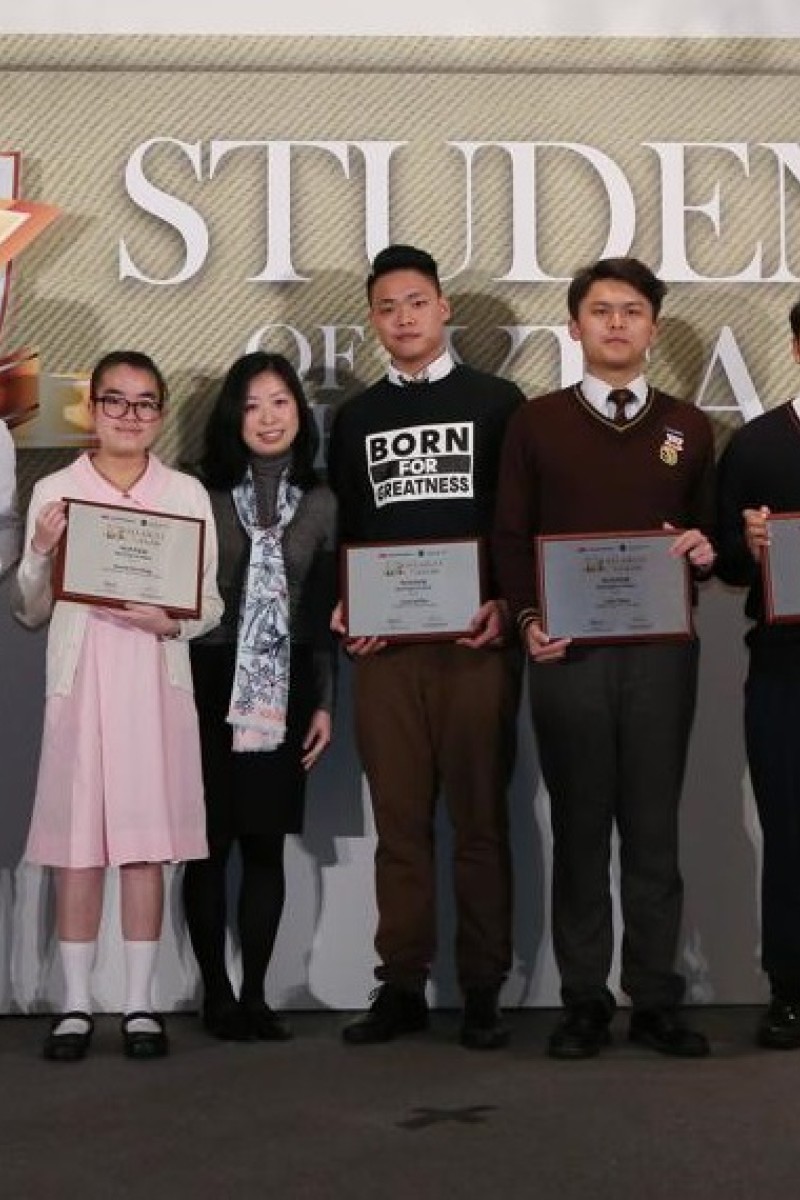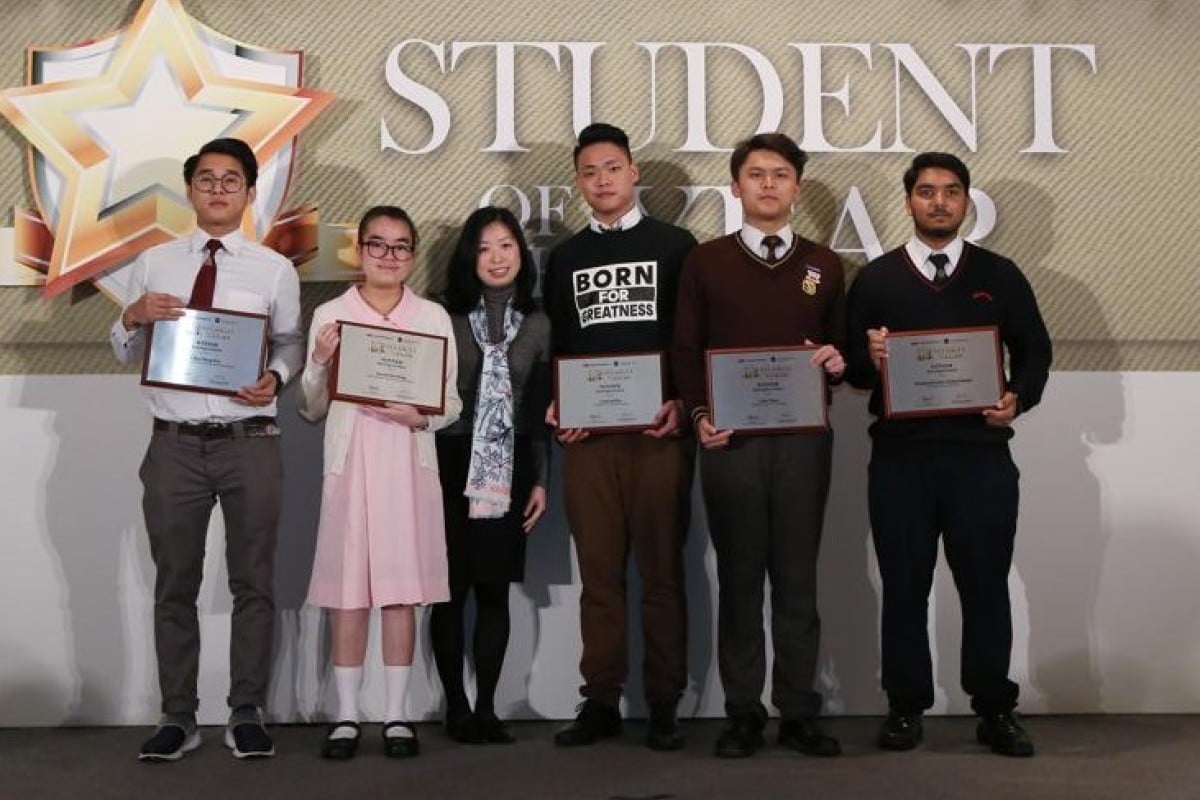
SOTY 2017: why grades aren’t everything if you want to win the Best Improvement award
This year’s judges tell us that overcoming failure and learning from it is just as important as good academic results
 Winners of the Best Improvement award 2016 (L to R) Chan Ming-pui, Kwok Hiu-ming, judge Olga Wong, Lau Lai-hin, Luk Chun and Mohamed Afser Sultan Basha.
Winners of the Best Improvement award 2016 (L to R) Chan Ming-pui, Kwok Hiu-ming, judge Olga Wong, Lau Lai-hin, Luk Chun and Mohamed Afser Sultan Basha.The Student of the Year awards not only recognise students who excel academically, but those who have made significant achievements in sports or arts, or those who have contributed to the community or shown devotion to their school. The awards celebrate success in all forms.
Finalists in the Student of the Year – Best Improvement category don’t need perfect academic records to impress the judges.
“The prize is not about getting full marks, it is about how they overcome difficulties,”Amy Chan Lim-chee, one of the judges, said. “It is very important to give recognition to students who have made an effort to improve their weaknesses.”
The executive manager of the Racing Development Board and headmistress at Apprentice Jockeys’ School has been on the judging panel for the Best Improvement category for two years, and has found that recognition can motivate students to succeed.
Last year, Chan said, there were three candidates whose moving stories about the encouragement they received from their principals, teachers, families and friends left a lasting impression on the judges.
“When people around them gave them encouragement, they immediately found learning wasn’t as difficult as they imagined,” said Chan.
To Chan, the Best Improvement award is not about comparing one candidate with another; “it is about how the candidates compete with themselves”.
Many students in Hong Kong face struggles such as an unstable home life, financial difficulties or language and cultural barriers. Getting past these obstacles takes a lot of hard work and dedication.
Like Chan, fellow judge Virginia Choi, managing consultant and country manager at Tamty McGill Consultants International, emphasised the importance of applicants’ personal journeys.
“Making changes can’t have been easy for the candidates; they must have gone through ups and downs to get to where they currently are,” Choi said.
“It doesn’t matter if candidates only get 60 out of 100 on their school records. What I care about is the journey they have gone through.
“When they were knocked, how did they feel, how did they climb back up, what did they learn?”
Olga Wong, the Editor for Hong Kong News at South China Morning Post, agrees with Choi that courage and determination are what most define those in the Best Improvement award category.
“Not being disheartened by past difficulties is a precious quality I would be looking for in this competition. This is what the city needs in young people in a challenging era,” Wong said.
Candidates will meet the judges at the beginning of next year. Both Chan and Choi agreed on the importance of students being themselves in front of the judges.
The interview, explained Chan, is actually more of a relaxed chat than a formal meeting, to help students feel at ease.
She added that before meeting the judges, candidates should think about where they started on their journey, what they’ve learned along the way and where they are now.
“As the judges will have limited time with the candidates, they should be prepared to tell their stories in a concise way,” said Chan.
You might expect the judges to want students to focus on the positive aspects of their stories, but Choi believes it’s important to take the good with the bad.
“Failure plays an important role in our lives because we can always learn from failure,” Choi said. “Candidates should be honest to themselves and to the judges about the struggles they faced and how they stood up again.”
The Student of the Year Awards competition is organised by South China Morning Post and Young Post and sponsored by The Hong Kong Jockey Club
Edited by Charlotte Ames-Ettridge